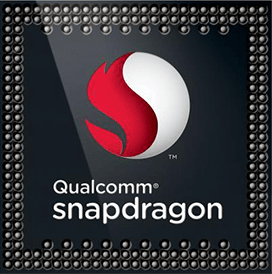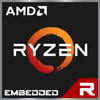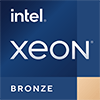
Qualcomm Snapdragon 778G+ Benchmark, Test and specs
Last updated:
The Qualcomm Snapdragon 778G+ has 8 cores with 8 threads and is based on the 4. gen of the Qualcomm Snapdragon series. The processor was released in Q4/2021. The Qualcomm Snapdragon 778G+ scores 815 points in the Geekbench 5 single-core benchmark. In the Geekbench 5 multi-core benchmark, the result is 2,856 points.

| Name: | Qualcomm Snapdragon 778G+ |
|---|---|
| Family: | Qualcomm Snapdragon (102) |
| CPU group: | Qualcomm Snapdragon 778 (2) |
| Architecture: | Kryo 670 |
| Segment: | Mobile |
| Generation: | 4 |
| Predecessor: | -- |
| Successor: | -- |
CPU Cores and Base Frequency
The Qualcomm Snapdragon 778G+ has 8 CPU cores and can calculate 8 threads in parallel. The clock frequency of the Qualcomm Snapdragon 778G+ is 2.50 GHz. The number of CPU cores greatly affects the speed of the processor and is an important performance indicator.
| CPU Cores / Threads: | 8 / 8 |
|---|---|
| Core architecture: | hybrid (Prime / big.LITTLE) |
| A-Core: | 1x Kryo 670 Prime |
| B-Core: | 3x Kryo 670 Gold |
| C-Core: | 4x Kryo 670 Silver |
| Hyperthreading / SMT: | No |
|---|---|
| Overclocking: | No |
| A-Core Frequency: | 2.50 GHz |
| B-Core Frequency: | 2.20 GHz |
| C-Core Frequency: | 1.90 GHz |
Artificial Intelligence and Machine Learning
Processors with the support of artificial intelligence (AI) and machine learning (ML) can process many calculations, especially audio, image and video processing, much faster than classic processors. Algorithms for ML improve their performance the more data they have collected via software. ML tasks can be processed up to 10,000 times faster than with a classic processor.
| AI hardware: | Qualcomm AI engine |
|---|---|
| AI specifications: | Hexagon 770 @ 12 TOPS |
Internal Graphics
The Qualcomm Snapdragon 778G+ has integrated graphics, called iGPU for short. Specifically, the Qualcomm Snapdragon 778G+ uses the Qualcomm Adreno 642L, which has 384 texture shaders and 4 execution units. The iGPU uses the system's main memory as graphics memory and sits on the processor's die.
| GPU name: | Qualcomm Adreno 642L |
|---|---|
| GPU frequency: | |
| GPU (Turbo): | No turbo |
| Compute units: | 4 |
| Shader: | 384 |
| Hardware Raytracing: | No |
| Release date: | Q2/2021 |
| Max. displays: | 1 |
|---|---|
| Generation: | 5 |
| Direct X: | 12.0 |
| Technology: | 6 nm |
| Max. GPU Memory: | 4 GB |
| Frame Generation: | No |
Hardware codec support
A photo or video codec that is accelerated in hardware can greatly accelerate the working speed of a processor and extend the battery life of notebooks or smartphones when playing videos.
| h265 / HEVC (8 bit): | Decode |
|---|---|
| h265 / HEVC (10 bit): | Decode |
| h264: | Decode / Encode |
| VP8: | Decode |
| VP9: | Decode |
| AV1: | No |
|---|---|
| AVC: | Decode |
| VC-1: | Decode |
| JPEG: | Decode / Encode |
Memory & PCIeThe processor can use up to 16 GB memory in 2 (Dual Channel) memory channels. The maximum memory bandwidth is 25.6 GB/s. The memory type as well as the amount of memory can greatly affect the speed of the system. |
|
| Memory type: | Memory bandwidth: |
|---|---|
| LPDDR5-6400 | 25.6 GB/s |
| Max. Memory: | 16 GB |
| Memory channels: | 2 (Dual Channel) |
| ECC: | No |
| PCIe: | |
| PCIe Bandwidth: | -- |
Thermal ManagementThe thermal design power (TDP for short) of the processor is . The TDP specifies the necessary cooling solution that is required to cool the processor sufficiently. The TDP usually gives a rough idea of the actual power consumption of the CPU. |
|
|---|---|
| TDP (PL1 / PBP): | |
| TDP (PL2): | -- |
| TDP up: | -- |
| TDP down: | -- |
| Tjunction max.: | -- |
Technical details
The Qualcomm Snapdragon 778G+ is made in 6 nm. The smaller the manufacturing process of a CPU, the more modern and energy-efficient it is. Overall, the processor has 2.00 MB cache. A large cache can greatly speed up the processor's speed in some cases such as games.
| Technology: | 6 nm |
|---|---|
| Chip design: | Chiplet |
| Socket: | -- |
| L2-Cache: | -- |
| L3-Cache: | 2.00 MB |
| AES-NI: | No |
| Operating systems: | Android |
| Virtualization: | None |
|---|---|
| Instruction set (ISA): | Armv8-A (64 bit) |
| ISA extensions: | -- |
| Release date: | Q4/2021 |
| Release price: | -- |
| Part Number: | SM7325-AE |
| Documents: | Technical data sheet |
Rate this processor
Benchmark results

The benchmark results for the Qualcomm Snapdragon 778G+ have been carefully checked by us. We only publish benchmark results that have been created by us or that have been submitted by a visitor and then checked by a team member. All results are based on and fullfill our benchmark guidelines.
Screenshots:
Screenshots:
- Geekbench 5.5.1 on Motorola Edge 30 (8 GB LPDDR5), Android 12
- Geekbench 6.0.0 on Motorola Edge 30 (8 GB LPDDR5), Android 12
Geekbench 5, 64bit (Single-Core)
Geekbench 5 is a cross plattform benchmark that heavily uses the systems memory. A fast memory will push the result a lot. The single-core test only uses one CPU core, the amount of cores or hyperthreading ability doesn't count.

|
Intel Core i3-9100HL
4C 4T @ 2.90 GHz |
||

|
Intel Core i5-6287U
2C 4T @ 3.50 GHz |
||

|
Intel Core i7-6560U
2C 4T @ 3.20 GHz |
||
|
|
Qualcomm Snapdragon 778G+
8C 8T @ 2.50 GHz |
||

|
Intel Core i7-4770TE
4C 8T @ 3.30 GHz |
||

|
Intel Core i3-L13G4
5C 5T @ 2.80 GHz |
||

|
AMD Ryzen Embedded R1505G
2C 4T @ 3.30 GHz |
||
Geekbench 5, 64bit (Multi-Core)
Geekbench 5 is a cross plattform benchmark that heavily uses the systems memory. A fast memory will push the result a lot. The multi-core test involves all CPU cores and taks a big advantage of hyperthreading.

|
Intel Xeon E7-4820 v2
8C 16T @ 2.50 GHz |
||

|
MediaTek Dimensity 8050
8C 8T @ 3.00 GHz |
||

|
Intel Xeon E3-1235L v5
4C 4T @ 2.40 GHz |
||
|
|
Qualcomm Snapdragon 778G+
8C 8T @ 2.50 GHz |
||

|
Intel Atom C3758R
8C 8T @ 2.40 GHz |
||

|
Qualcomm Snapdragon 8cx Gen. 2
8C 8T @ 3.15 GHz |
||
|
|
HiSilicon Kirin 990 5G
8C 8T @ 2.86 GHz |
||
Geekbench 6 (Single-Core)
Geekbench 6 is a benchmark for modern computers, notebooks and smartphones. What is new is an optimized utilization of newer CPU architectures, e.g. based on the big.LITTLE concept and combining CPU cores of different sizes. The single-core benchmark only evaluates the performance of the fastest CPU core, the number of CPU cores in a processor is irrelevant here.

|
Intel Core i5-4330M
2C 4T @ 3.50 GHz |
||

|
Intel Core i7-4710HQ
4C 8T @ 3.50 GHz |
||

|
Intel Core i7-4710MQ
4C 8T @ 3.50 GHz |
||
|
|
Qualcomm Snapdragon 778G+
8C 8T @ 2.50 GHz |
||

|
Qualcomm Snapdragon 7c+ Gen 3
8C 8T @ 2.40 GHz |
||

|
Intel Core i7-4610M
2C 4T @ 3.60 GHz |
||

|
Intel Core i7-4600M
2C 4T @ 3.60 GHz |
||
Geekbench 6 (Multi-Core)
Geekbench 6 is a benchmark for modern computers, notebooks and smartphones. What is new is an optimized utilization of newer CPU architectures, e.g. based on the big.LITTLE concept and combining CPU cores of different sizes. The multi-core benchmark evaluates the performance of all of the processor's CPU cores. Virtual thread improvements such as AMD SMT or Intel's Hyper-Threading have a positive impact on the benchmark result.

|
MediaTek Dimensity 1000C
8C 8T @ 2.00 GHz |
||

|
Intel Core i5-6400T
4C 4T @ 2.50 GHz |
||

|
Intel Core i3-6320
2C 4T @ 3.90 GHz |
||
|
|
Qualcomm Snapdragon 778G+
8C 8T @ 2.50 GHz |
||

|
Intel Core i7-980
6C 12T @ 3.33 GHz |
||

|
Intel Xeon Bronze 3204
6C 6T @ 1.90 GHz |
||

|
AMD Ryzen 3 3350U
4C 4T @ 2.10 GHz |
||
AnTuTu 9 Benchmark
The AnTuTu 9 benchmark is very well suited to measuring the performance of a smartphone. AnTuTu 9 is quite heavy on 3D graphics and can now also use the "Metal" graphics interface. In AnTuTu, memory and UX (user experience) are also tested by simulating browser and app usage. AnTuTu version 9 can compare any ARM CPU running on Android or iOS. Devices may not be directly comparable when benchmarked on different operating systems.
In the AnTuTu 9 benchmark, the single-core performance of a processor is only slightly weighted. The rating is made up of the multi-core performance of the processor, the speed of the working memory, and the performance of the internal graphics.
In the AnTuTu 9 benchmark, the single-core performance of a processor is only slightly weighted. The rating is made up of the multi-core performance of the processor, the speed of the working memory, and the performance of the internal graphics.

|
Qualcomm Snapdragon 865
8C 8T @ 2.84 GHz |
||

|
Apple A13 Bionic
6C 6T @ 2.65 GHz |
||

|
MediaTek Dimensity 1100
8C 8T @ 2.60 GHz |
||
|
|
Qualcomm Snapdragon 778G+
8C 8T @ 2.50 GHz |
||

|
Qualcomm Snapdragon 855 Plus
8C 8T @ 2.96 GHz |
||
|
|
HiSilicon Kirin 990 5G
8C 8T @ 2.86 GHz |
||

|
Qualcomm Snapdragon 860
8C 8T @ 2.96 GHz |
||
Performance for Artificial Intelligence (AI) and Machine Learning (ML)
Processors with the support of artificial intelligence (AI) and machine learning (ML) can process many calculations, especially audio, image and video processing, much faster than classic processors. The performance is given in the number (trillions) of arithmetic operations per second (TOPS).

|
Qualcomm Snapdragon 865
8C 8T @ 2.84 GHz |
||

|
Qualcomm Snapdragon 865+
8C 8T @ 3.10 GHz |
||

|
Samsung Exynos 990
8C 8T @ 2.73 GHz |
||
|
|
Qualcomm Snapdragon 778G+
8C 8T @ 2.50 GHz |
||

|
Qualcomm Snapdragon 778G
8C 8T @ 2.40 GHz |
||

|
Qualcomm Snapdragon 780G
8C 8T @ 2.40 GHz |
||

|
Apple M1 (7-GPU)
8C 8T @ 0.60 GHz |
||
Benchmarks

Geekbench 5 (SC)
2,488 entries
2,488 entries

Geekbench 5 (MC)
2,461 entries
2,461 entries

Geekbench 6 (SC)
1,755 entries
1,755 entries

Geekbench 6 (MC)
1,703 entries
1,703 entries

AnTuTu 9 Benchmark
90 entries
90 entries

AI / ML Performance
116 entries
116 entries
Popular comparisons
back to index






